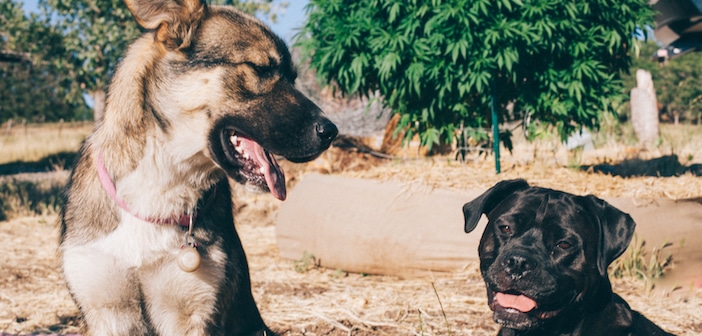In every major city across Canada, dogs are performing highly important tasks that human beings simply cannot do by senses alone. Some of those include the detection of explosives, weapons, and of course, sniffing for illegal drugs.
In July 2018, marijuana is expected to be legal and available across the nation and this shift in policy creates a challenge for the law enforcement community. Our officers and border patrol are seeking to find a balance between searching anyone who has pot on them, and those who exceed the expected federal limit of 30 grams per person.
Many questions arise in the area of cannabis detection because a significant portion of the K9 community are trained to detect any amount of marijuana.
“Under the old drug detector dog model, K9’s were trained to locate drugs such as cannabis, hashish, hash oil, cocaine, crack cocaine, heroin, meth, and ecstasy,” said Staff Sergeant Carolle Dionne, the Media Coordinator for the Ontario Provincial Police (OPP) in an interview with Marijuana.com. “In 2016, in anticipation of the legalization of cannabis, the K9 program decided to no longer train or imprint the new dogs on cannabis products.”
Dionne added that currently the OPP has 25 drug detector K9’s throughout Ontario, and nine of them are not trained to detect marijuana. As the other 16 dogs gradually head to retirement, all other K9’s will not have the training for cannabis detection.
For further answers on the issue, Marijuana.com contacted Pando Stepanis, who is the director of training for Olympus K9, a popular dog training facility that has been in business for just under 38 years.
Stepanis said that the fate of drug-sniffing dogs being tasked with finding cannabis will depend on the decision of various law enforcement agencies. “Even though it’s going to be a legal product, there’s still going to be restrictions on how much you can carry,” he said.
Stepanis added that dogs can be trained to detect higher amounts of a substance, so he predicted that some K9’s may prove useful for those who are carrying more pot than allowed by law. “We already do that with currency dogs. They’re not going to indicate on every $20 bill you have in your pocket, but they indicate on amounts that are greater than $10,000.”
Regardless of the decisions made by law enforcement, Stepanis is confident that some dogs will still need to be trained for cannabis detection. “There is going to be applications where you still can’t have it around, for example, government buildings,” he said. “Alcohol is a legal product, but you can’t bring it into a lot of places.”
Stepanis is correct on cannabis detection for certain police forces, as one such group is the Canada Border Services Agency (CBSA), who will still require marijuana detection for anyone traveling internationally.
“The CBSA’s Detector Dog Service (DDS) training will not be impacted by the imminent marijuana legalization. The role of the detector dog remains the same,” said Kathleen Marriner, Spokesperson for the CBSA in a statement to Marijuana.com.
“Under the proposed Cannabis Act, it will remain illegal to import or export from Canada without a valid permit, issued by the Government of Canada.” Marriner added that “the CBSA, through its programs and services, will continue to uphold laws governing the illegal cross-border movement of cannabis, while maintaining the free flow of legitimate travel and trade.
credit:marijuana.com

